Patrik Orcutt 08.12.24
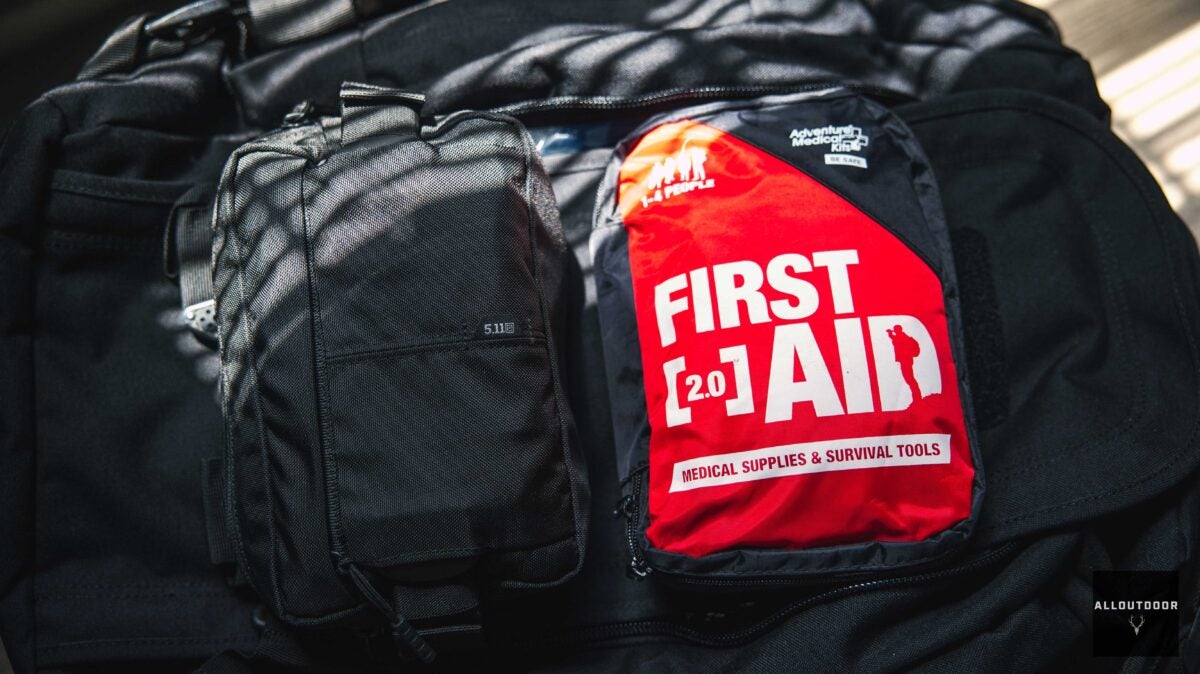
Having a well-stocked car medical kit is an essential part of preparedness, especially for emergencies that can arise during travel. Whether you’re taking a short drive or embarking on a long road trip, having the right medical supplies on hand can make all the difference in handling injuries or health issues until professional medical help arrives. This overview will guide you through my decision-making process of what gear I carry and why. Keep in mind the medical gear in my automobile is ever-evolving and changing. I also have very limited medical training with all of it being from the military and the trauma training being about 1o years old at this point. What I will be outlining below will be mostly the basics and you will see that I have a few more items in my pictures.
Home Made vs Store Bought Car Medical Kits
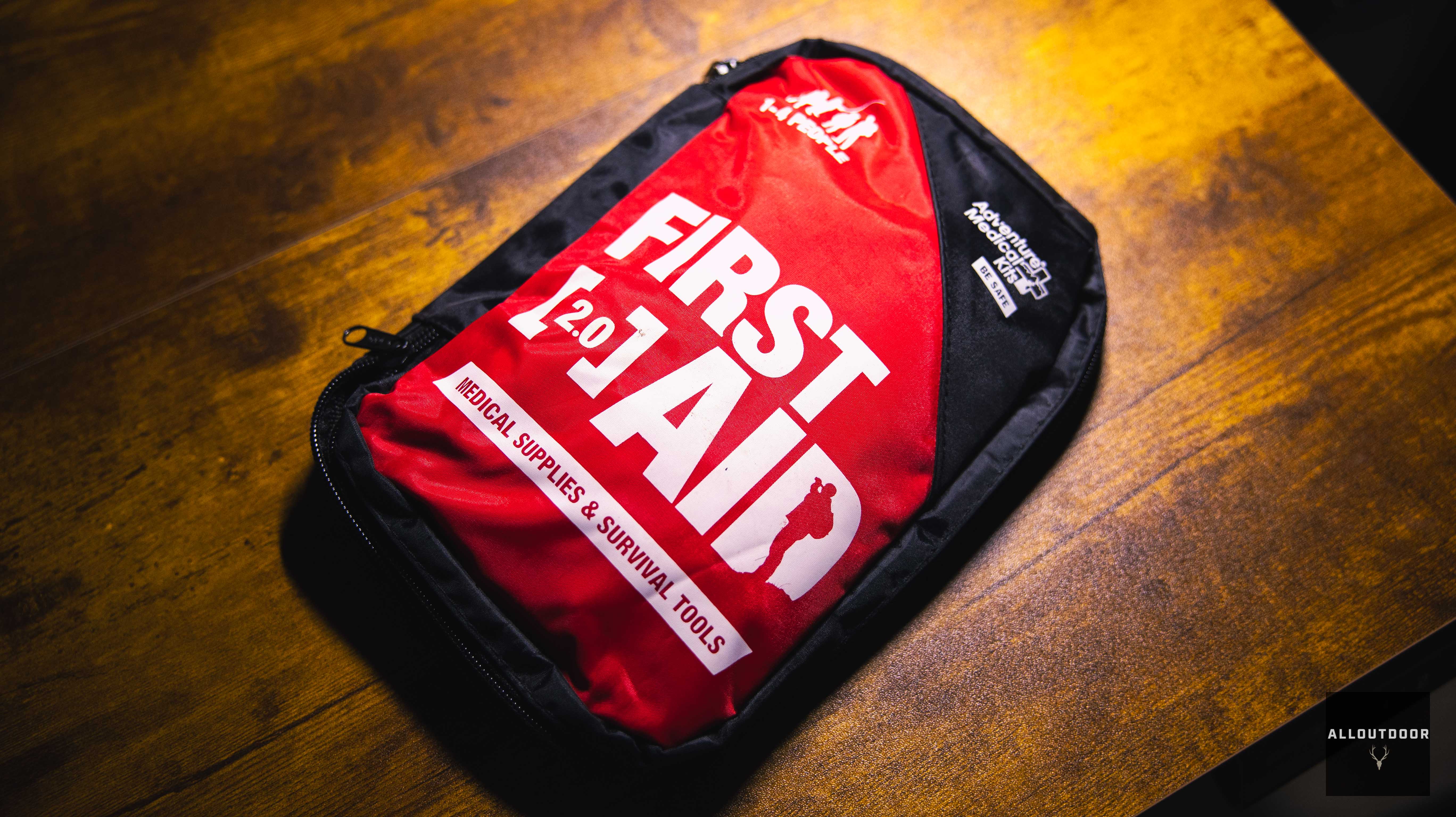

Store-bought medical kits offer the advantage of convenience, as they are pre-assembled with a variety of essential items, often in a well-organized, portable case. They are designed by professionals to cover common medical needs, ensuring you have a comprehensive selection of supplies without the hassle of curating them yourself. The biggest advantage to a store-bought kit is that are made for anyone to use and commonly comes with everything labeled and directions for everything from medications to applying a splint. However, these car medical kit options can be less customizable, potentially including items you don’t need while lacking others that might be more relevant to your specific situation. On the other hand, homemade medical kits allow for complete customization, letting you tailor the contents to your unique needs, preferences, and specific medical conditions. The downside is that creating a homemade kit can be time-consuming and may require a deeper knowledge of what items are necessary for a well-rounded kit, which can lead to gaps in preparedness if certain crucial items are overlooked.
Basic First Aid Supplies
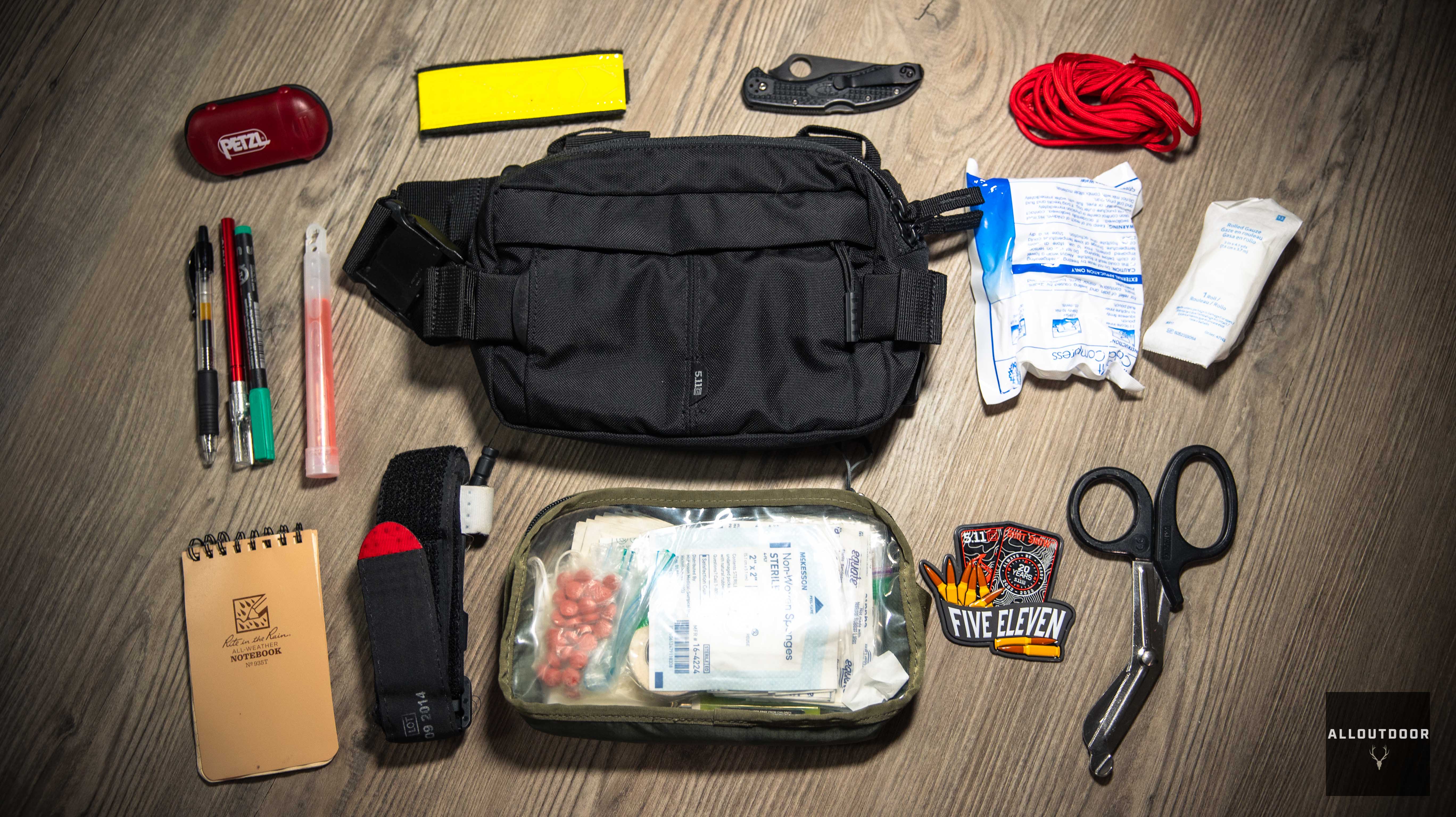

At the core of any medical kit are basic first aid supplies that can be used to treat minor injuries like cuts, scrapes, and burns. These items are the foundation of your car medical kit and should be prioritized:
- Adhesive Bandages: A variety of sizes, including small strips for minor cuts and larger ones for more substantial wounds, should be included.
- Sterile Gauze Pads and Rolls: Gauze is essential for covering wounds, controlling bleeding, and providing a sterile environment for healing.
- Medical Tape: Use this to secure gauze or bandages in place, particularly for larger wounds.
- Antiseptic Wipes: These are crucial for cleaning wounds to prevent infection. Alcohol wipes or antiseptic towelettes are good options.
- Antibiotic Ointment: A small tube of antibiotic ointment, like Neosporin, helps prevent infection and promotes healing.
- Hydrogen Peroxide or Saline Solution: These can be used for wound cleaning, although saline solution is preferable for its gentleness.
- Scissors: A pair of medical scissors is essential for cutting gauze, tape, or clothing if needed.
- Disposable Gloves: At least a few pairs of latex or nitrile gloves to protect yourself and others from cross-contamination during treatment.
Trauma Supplies
In more severe emergencies, trauma supplies can be critical in managing life-threatening injuries until emergency services arrive. These items are especially important if you travel in remote areas or in situations where professional medical help might be delayed:
- Tourniquet: A tourniquet can be a life-saving tool in cases of severe bleeding that cannot be controlled with pressure alone.
- Hemostatic Dressings: These dressings, often impregnated with substances like kaolin, help accelerate blood clotting in serious wounds.
- Israeli Bandage or Emergency Trauma Dressing: These are designed for heavy bleeding and can be used to apply pressure to large wounds.
Over-the-Counter Medications
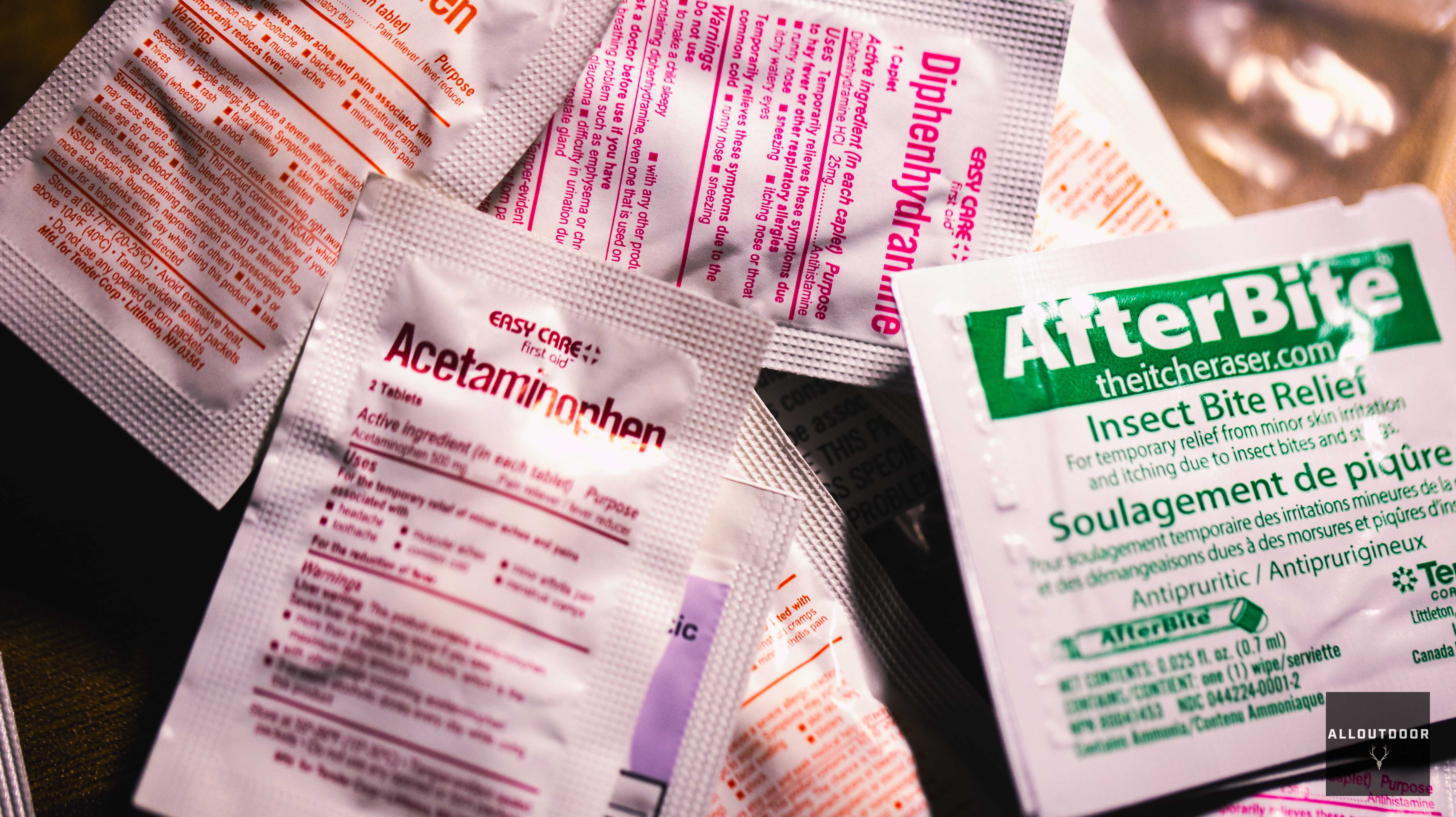

Over-the-counter (OTC) medications are a vital part of your car medical kit, as they can provide relief for common ailments and minor health issues while on the road. These should be included in your kit:
- Pain Relievers: Ibuprofen, acetaminophen, or aspirin should be included for relief from pain, inflammation, or fever.
- Antihistamines: These are crucial for treating allergic reactions, especially for those prone to severe allergies. Benadryl (diphenhydramine) is a common choice.
- Antacids: Include a small pack of antacids to treat heartburn or indigestion.
- Anti-Diarrheal Medication: Loperamide (Imodium) is useful for managing diarrhea, which can be debilitating during travel.
- Electrolyte Tablets or Powder: Dehydration can be a concern, especially during long trips or in hot climates. Electrolyte supplements can help maintain hydration and electrolyte balance.
Specialty Items for Chronic Conditions
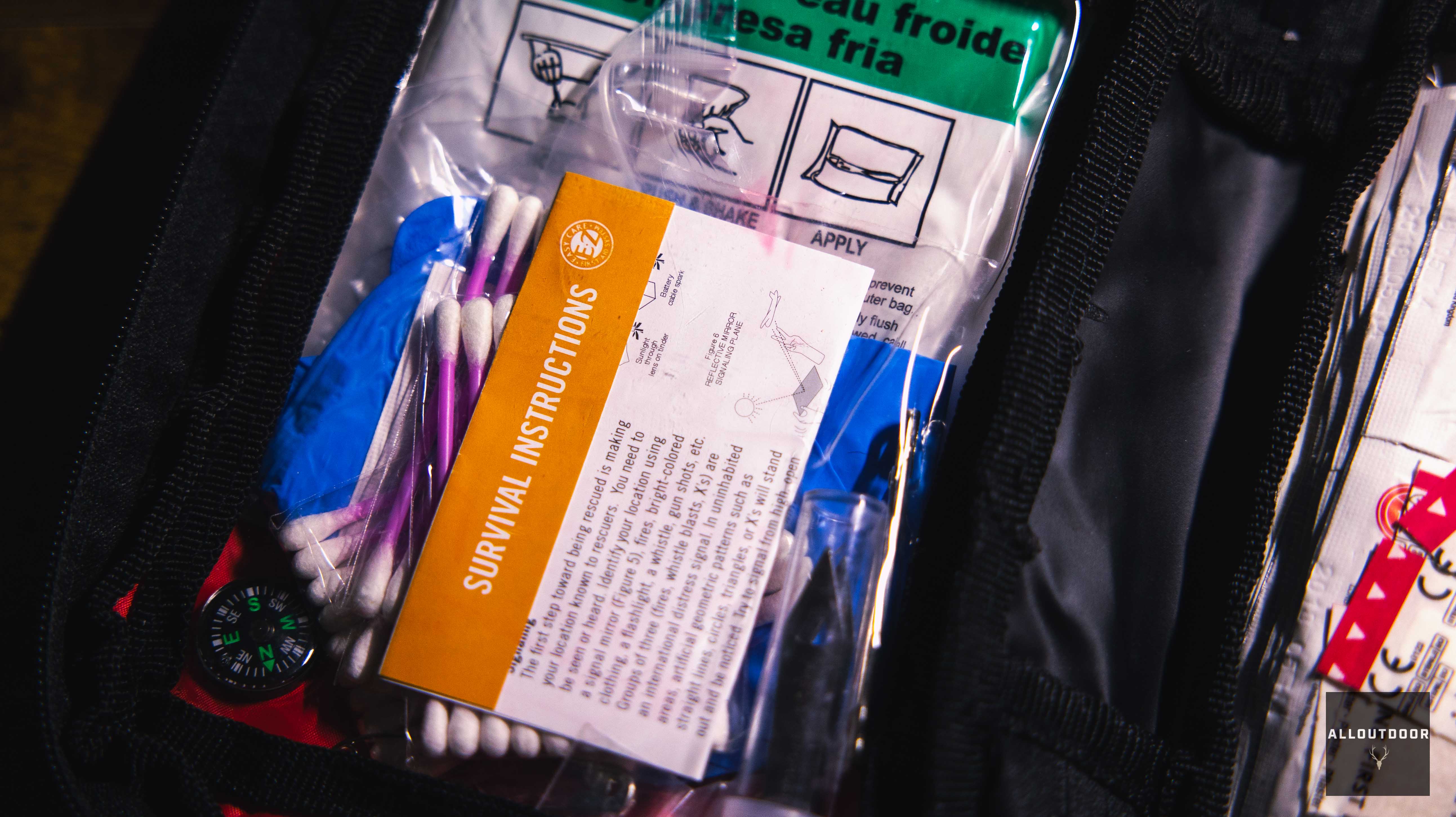

If you or any of your regular passengers have chronic health conditions, it’s important to include specialized items that cater to these needs:
- Personal Medications: Always have a few extra doses of prescription medications, like insulin for diabetics, inhalers for asthma, or EpiPens for severe allergies.
- Blood Glucose Meter: For diabetics, a blood glucose meter and spare test strips are essential for monitoring blood sugar levels.
- Asthma Inhaler: If someone in your vehicle has asthma, ensure that a spare rescue inhaler is available.
- EpiPen: For those with severe allergies, having an EpiPen on hand can be life-saving in the event of an anaphylactic reaction. (I don’t currently carry one of these but I need to get a few for my kit)
Additional Useful Items
Beyond the basics, there are several other items that can enhance the functionality and effectiveness of your car medical kit:
- Instant Cold Packs: Useful for reducing swelling, pain, and inflammation from sprains, strains, or insect bites.
- Eye Wash Solution: A sterile solution for flushing out debris or chemicals from the eyes.
- Emergency Contact Information: A list of emergency contacts, including family, friends, and local emergency services, should be kept in your kit.
- First Aid Manual: A small, easy-to-understand first aid guide can be incredibly helpful, especially in high-stress situations where instructions on treating injuries are needed.
- Multi-Tool: A compact multi-tool with pliers, a knife, and screwdrivers can be useful for various emergency situations.
- Sunscreen and Insect Repellent: These items can help prevent sunburn and insect bites, especially during outdoor activities.
- Whistle: A whistle can be used to signal for help if you’re in a situation where your car is disabled in a remote location.
Storage and Maintenance
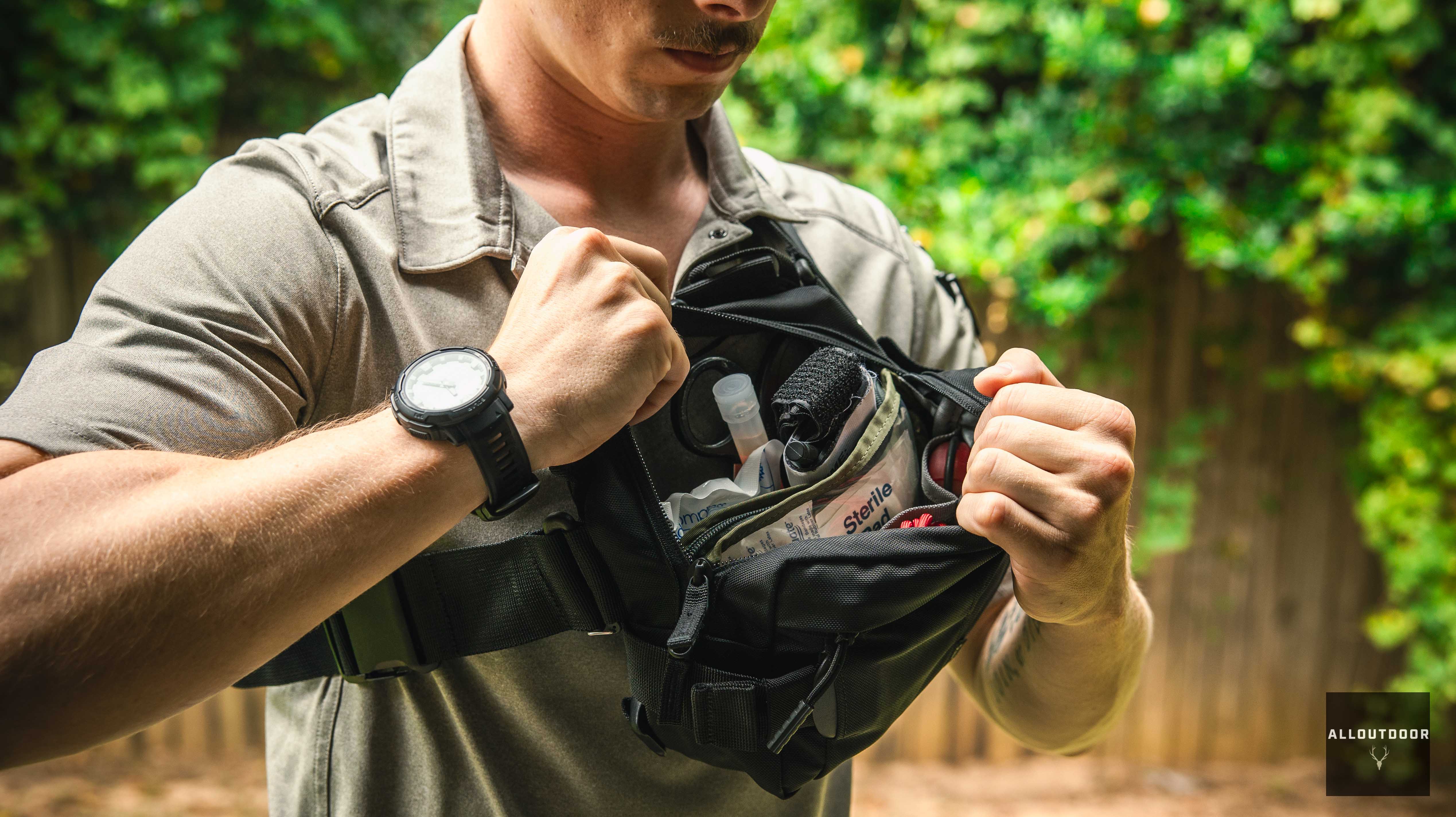

Finally, consider the storage and maintenance of your car medical kit to ensure it remains effective and ready to use:
- Storage Container: Use a durable, water-resistant bag or container to store your medical supplies. Ensure it’s easily accessible in your car but secure enough to prevent items from becoming disorganized during travel.
- Container: I like to hold most of my medical equipment that’s not in the first aid kit in this small see-through bag from Osprey called the “Ultralight Liquids Pouch” as it fits the essentials and is easy to see what’s inside. That container is stuffed inside of a 5.11 LVC6 Waist Pack 2.0 3L for mobile needs. if you don’t have either of these kinds of containers, lots of off the shelf medical kits come in a pretty good container like the one featured in this review from Adventure Medical Kits.
- Regular Maintenance: Periodically check the contents of your kit to replace expired medications, used items, or damaged supplies. Keeping your kit up to date is crucial for ensuring its reliability in an emergency.
Auto-Related Coverage on AllOutdoor
